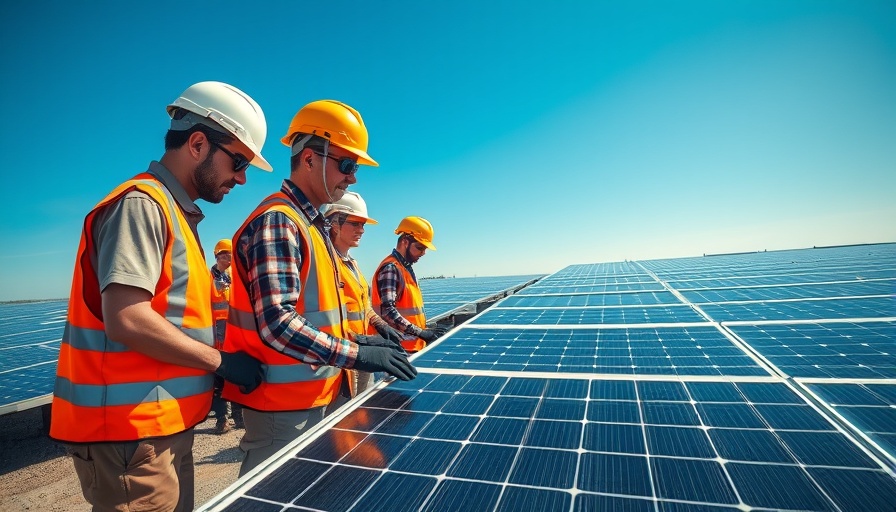
Seizing the Renewable Energy Opportunity in Southeast Asia
Southeast Asia is at a pivotal moment in its energy transition, with the potential to unlock significant opportunities through renewable energy. As the region grapples with rapid economic growth and increasing climate risks, localizing renewable supply chains and attracting investments are vital for a resilient, low-carbon future.
The Urgency of Transition
Amidst rising trade tensions and soaring tariffs especially on solar products, Southeast Asian nations must reassess their energy strategies. The U.S.'s recent decision to impose heavy tariffs on solar imports from the region has intensified the need for countries to secure self-sustaining energy systems that reduce dependency on external supply chains. This impromptu urgency mirrors the approach taken by China, which has rapidly expanded its renewable infrastructure by effectively managing electrical demand growth through renewables, as highlighted by Grant Hauber from the Institute for Energy Economics and Financial Analysis (IEEFA).
Vietnam: A Luminary in Renewable Growth
Vietnam serves as a leading example, having restructured its energy policies to embrace solar and wind energy and consequently skyrocketing to one of the top markets for renewables within just two years. Hauber notes that Vietnam's success stemmed from domestically funded initiatives that avoided foreign debt, thereby establishing a model for other countries to emulate. Following the revision of its Power Development Plan, Vietnam aims to increase its renewable capacity dramatically by 2030, showcasing the importance of immediate action and local empowerment in scaling up green energy solutions.
Economic Advantages of Investing in Renewables
Investments in renewable projects differ fundamentally from fossil fuel ventures in their cost structure. While fossil fuel projects often require continuous investments to manage fluctuating costs, renewables represent a single upfront expenditure with minimal ongoing costs. This upfront investment can provide long-term stability and reduce financial volatility.
Essential Policies to Promote Renewable Energy
The path forward calls for urgent policy interventions that prioritize sustainable energy practices: regulatory frameworks that encourage domestic investment in renewable technologies, financial incentives for green energy usage, and initiatives to build local capacity in energy production. Now, more than ever, countries must foster the growth of green industries and technology while aligning with global efforts for climate action.
Future Predictions for Renewable Energy in Southeast Asia
As Southeast Asia continues to confront the challenges of climate change, sustainable energy development is crucial for economic resilience. With careful planning, there is a clear roadmap to transition into a renewable energy powerhouse, reducing carbon footprints and fulfilling sustainable development goals. The success stories emerging from the region could serve as scalable models for other developing nations striving to foster eco-friendly economies.
The Road Ahead: Engaging Readers in the Renewable Revolution
The urgency of the renewable energy transition cannot be overstated. For communities, individuals, and governments across Southeast Asia, the potential for a cleaner, sustainable future lies in collective action. By adopting policies that support renewable energy projects and championing sustainable practices, the region can pave the way for a greener tomorrow.
 Add Row
Add Row  Add
Add 



Write A Comment